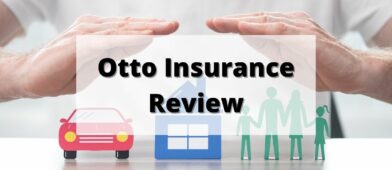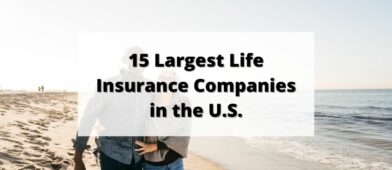I distinctly remember the moment when I Googled what “AD&D insurance” stood for. I was at my first job and I was reading the employee manual because I had to opt into a lot of different things I’d never heard of before.
I was twenty-something and despite my uber-nerd credentials, I did not play Dungeons and Dragons anymore. That was the last time AD&D ever popped in my life.
Well, AD&D stands for “Accidental death and dismemberment!”
I don’t know what was scarier, the idea that my employer was offering accidental death insurance… or that it was lumped in with dismemberment!
Insurance is one of those messed up things in life that you buy hoping to never use it.
The amount of insurance you need will vary based on your life situation and personal choices but in general, everyone will need health insurance, life insurance, homeowner’s or renter’s insurance, disability insurance, and umbrella insurance. After that, it breaks down into more specialized insurance; such as pet insurance or concealed carry insurance.
But for today, we’re going to discuss just the core ones everyone really needs.
Table of Contents
Major Types of Insurance Everyone Needs
Here are the major types of insurance everyone needs:
- Health insurance
- Auto insurance
- Life insurance
- Homeowner’s or Renter’s insurance
- Disability insurance
- Umbrella insurance
Your life situation will dictate how much of each you’ll need, but for the most part these are considered “must haves” if you can afford it.
Health Insurance
If you are employed, you typically get this through your employer. If you are unemployed, you may have to get it through a healthcare exchange through your state (12 states and Washington D.C. offer it) or directly from an insurer. If you are between jobs, you may wish to look at short term health insurance if you can’t get COBRA (or if the gap is too long).
Health insurance covers you if you get sick or injured and need medical treatment.
I won’t go into this too much because it’s the most common – but health insurance is important because a study in the American Journal of Public Health from March 2019 reported that 66.5% of bankruptcies were tied to medical issues. Either due to the high cost of medical treatment or being out of work (which we will get to later).
(I lump dental and vision insurance in with this category even if they are usually purchased separately)
Auto Insurance
Auto insurance is another policy I wanted to touch on because you’re required to have one if you own a car. I won’t go into it other than to say you want to, at a minimum, get what the law requires in your state. Who you use will depend on the best rates you can get, which will require you to shop around.
Personally, I get it with the same company that issues my homeowner’s insurance.
Life Insurance
Put simply, Life insurance is a policy that pays out when you die. There are different types of life insurance but the basic idea is that your policy will pay out a benefit to your heirs when you pass.
Life insurance is crucial if you contribute a significant percentage of the income to your household and you have significant financial liabilities. Some of those liabilities may be debts such as on your car or your home.
However, you don’t need to be the primary breadwinner. If the death of one parent would put the other into financial distress then life insurance should be considered. If a stay at home parent passes away, the remaining parent will need to pay for daycare and perhaps other help around the home. If you want to know how much life insurance you need, you start by understanding your future needs.
Fortunately, there are a lot of companies now offering life insurance online. We keep a list of the ones who operate online and are fast life insurance policy issuers.
Homeowner’s or Renter’s Insurance
If you own a home with a mortgage, you already have homeowner’s insurance and you won’t need convincing because you have no choice. The lender will require you to have it.
Also, remember to get flood insurance and any riders for high dollar valuables such as jewelry. Here’s a scary flooding story from a reader:
Flood insurance should also be considered even if you don’t live near a large body of water. Once a freak storm north of us caused a flash flood along a normally placid creek. A wall of water rushed over the road next to it and swept several cars all the way down the creek to the Allegheny River. All the houses sitting at what looked like a reasonable rise from the creek were flooded. Flood insurance is only expensive if you live in a high-risk zone, so it’s worth considering if you live anywhere that’s downhill from a potential water source. And you should definitely have it if you ARE near a large body of water.
If you are a renter, you might not know about renter’s insurance. Renter’s insurance is important because even though you don’t own your residence, and aren’t responsible for its systems, there are still a lot of times when renter’s insurance can save you.
For example, renter’s insurance protects your belongings. If there is a flood in your apartment, you won’t be responsible for any of the damage or repairs to your apartment… but you would have to replace your own stuff that was damaged by the flood. Renter’s insurance would make you whole.
The real reason why renter’s insurance is important has to do with its cost – it’s so cheap.
You can get a quote for renter’s insurance from a company like Lemonade in just a few minutes for free. (Here’s our review of Lemonade)
If you need homeowner’s insurance, Insurify can help you get several quotes.
✨ Related: Understanding the Average Cost of Homeowner’s Insurance
Disability Insurance
If you get hurt and are unable to work, disability insurance is the insurance policy that pays out to help you bridge the gap until you can go back to work. Have you ever seen those AFLAC commercials with the duck? They were advertising disability insurance.
If you’ve been working for a while, you actually have “disability insurance” through the Social Security Administration too. The Social Security Disability Insurance program (SSDI) is not like private insurance policies, it’s much stricter. It covers you if your disability is expected to last at least a year or “result in death.” (You can read more about it here) People who are on SSDI are often severely disabled.
Private disability insurance is less strict and so it can cover you if you find out you’re out of work for a much shorter period of time. If you’re thinking about disability insurance, here’s our article on how to determine if you need disability insurance.
We also maintain a list of the best disability insurance companies and you can always get a quote absolutely free – so it doesn’t hurt to check if it fits your budget.
Disability insurance is not the same as “unemployment insurance,” which is a separate thing. That you can collect from your state whenever you lose your job.
Umbrella Insurance
Umbrella insurance is the “everything else” insurance that protects you if you exceed the limits of other policies such as automobile or homeowner’s insurance. It’s low cost for what it offers but it’s not necessarily “cheap” in the same way that renter’s insurance is cheap.
Technically, umbrella insurance is “personal liability insurance” that will cover claims in excess of your other policies. Let’s say someone slips and falls on your front step, breaks every single bone in their body, and has a very expensive medical procedure in excess of your homeowner’s coverage. The umbrella policy would step in and pay for the rest.
However, if that person damaged your step, the umbrella policy doesn’t fix the step – your property is excluded. It only protects you from liability.
If you need this, get it from the company you get your homeowners or auto policy from because you can probably get a discount versus going to a private company.
Summary
That’s it! These are the policies that I think everyone needs to have in some form or another.
There’s one that I think is common but not for everyone at any age and it’s long term care insurance. Give that post a look if you’re thinking about it.
This list protects the most important things in everyone’s life, your body, your home, and your income. You may need insurance policies beyond this, tailored to your needs, but I believe everyone should have, at some level, these policies.




Joseph Kane says
Nice job I think I am going to look into that umbrella insurance. The insurance that you did not mention are as follows:
1.Flood insurance
2.Errors and admissions insurance
3.Last but not least “Alzheimer’s insurance (this one I made up but it would be a big seller)
Getting back to the dismemberment insurance you mentioned in your article That I could have used seeing that I have lost an arm and later an eye in accidents.
Stay the course and full steam ahead Sir.
live full,
joe kane
Judy Hershey says
I am a nanny that transports my employer’s children to their various activities throughout the day. I added an additional Business Rider with a higher coverage for medical needs to my auto insurance to cover an accident with children in the car.
Joyce Chang says
How about Long term care insurance – many companies that are offering this type of insurance .
A few readers mentioned long term care insurance, it’s something we covered in a post, and I’ve added it to the end as a footnote so people can do more research on it. Thanks!
Martha Harbin says
Don’t forget flood insurance! Everyone who is in any type of a floodplain- even like a 1,000-year plain (if that’s a thing) – needs flood insurance because of the way climate change is making previously unlikely events, pretty darn likely.
Retired says
Jim, You may want to consider adding long-term care insurance, though it has become very expensive. DIsability insurance is only useful if you are working and is very difficult to collect on if you are self-employed in my experience. Thanks for your good work.
Stewart Graham says
This was previously mentioned and I heartily agree with it. My wife had a universal life policy when she was married previously. As a financial advisor I saw this cash value as a tax-deferred investment and promptly exchanged it for a Variable Universal Life Insurance policy and grew the cash value from $16,000 to roughly $62,000. So that is a huge pot of money to access with 0% interest rate after the 10 year waiting period to get that rate.
But here is another reason to have permanent insurance. I think many people who have done financial planning (easy for me to do since I was a financial advisor for over 24 years) may believe that they may have accumulated enough wealth to retire on. Hopefully they have accumulated enough to retire on if they are a survivor. Granted some of their expenses will go down (20% to 30%) but their survivor income will also go down as well, maybe up to 50%. My current wife is a retired teacher. Upon her death her survivor pension to me will be cut in half. If both retirees have only Social Security and no pensions, the total Social Security income to the household will go down as well. If all we had was term insurance (premiums eventually increased a lot after a certain term) I would be in a different position.
I am fairly confident we have a high probability of not running out of money in our retirement. I confess I have not really calculated what life will be like with half of her teacher’s pension. No regrets though, I am happier looking for part-time work these days. Full-time work is an option for me and semi-retirement is affordable.
Manoj Jha says
You didn’t leave anything out, but you did over-sell life insurance. Not everybody needs it. You need it only if you have dependents. People with no children or adult children do not need it, unless they happen to have a dependent spouse. Even then, they don’t need if after the working spouse retires. It is ludicrous to see retired couples carry life insurance, as if the nest egg they are counting on to support both of them will suddenly crack under the weight of just one.
David Jones says
In response to your offer of mentioning another type of insurance you should have to get a free copy of the book “I will teach you to be rich”…..
The answer is…..DEPOSIT INSURANCE.
We already get this for “free!”
David Jones says
If you have more than the FDIC or NCUA insurance limit, there are ways to structure your deposits to cover any uninsured deposits….!!
ed alva says
Extended Medical Insurance is also one or Gap insurance help to cover the costs that regular medical doesnt cover.
Ray says
Another insurance that you need, but may not necessarily want is Private Mortgage Insurance (PMI) if your putting less than 20% down when buying your home. Luckily it goes away once you hit 78% LTV.